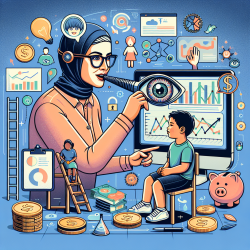The shift to videoconferencing psychotherapy (VCP) during the COVID-19 pandemic has been transformative for mental health services, including psychodynamic therapy. The research article, "Videoconferencing psychotherapy from a psychodynamic point of view. A qualitative analysis," provides valuable insights into the experiences of psychodynamic psychotherapists, particularly those practicing Transference-Focused Psychotherapy (TFP), as they transitioned to remote therapy during the pandemic.
Understanding the advantages and challenges of VCP can help practitioners improve their skills and optimize therapeutic outcomes. Here are key findings from the study:
- Access to Psychotherapy: VCP enhances access to therapy by providing convenience and safety, reducing missed sessions, and maintaining continuity. However, technical issues and data protection concerns were noted as significant challenges.
- Specificity of the Online Setting: The remote setting offers insights into patients' personal environments, which can be therapeutically useful. However, privacy issues and the loss of the familiar office setting pose challenges to maintaining a controlled therapeutic environment.
- Bodily Aspects: The absence of nonverbal communication and shared physical presence is a major disadvantage. The loss of eye contact, body language, and other nonverbal cues can hinder the therapeutic process, especially for patients with severe personality disorders.
- Therapeutic Relationship: VCP can facilitate emotional expression and reduce anxiety, but many therapists reported a loss of emotional contact and increased difficulty in managing crises. The relationship often becomes more cognitive and less intimate.
- Therapeutic Process: The lack of transitional periods before and after sessions, intolerance for silence, and increased focus on verbal communication can alter the therapeutic process. Some therapists found the process more supportive and cognitive, while others noted difficulties in emotion recognition and maintaining therapeutic neutrality.
- Therapists' Experience: Many therapists found VCP more exhausting and restrictive, requiring more effort to stay connected and recognize emotions. Despite these challenges, some reported being more focused and concentrated during sessions.
Practitioners should consider these findings when implementing VCP to enhance their therapeutic skills and outcomes. Further research is needed to explore the long-term implications of VCP and identify best practices for different patient populations.
To read the original research paper, please follow this link: Videoconferencing psychotherapy from a psychodynamic point of view. A qualitative analysis










